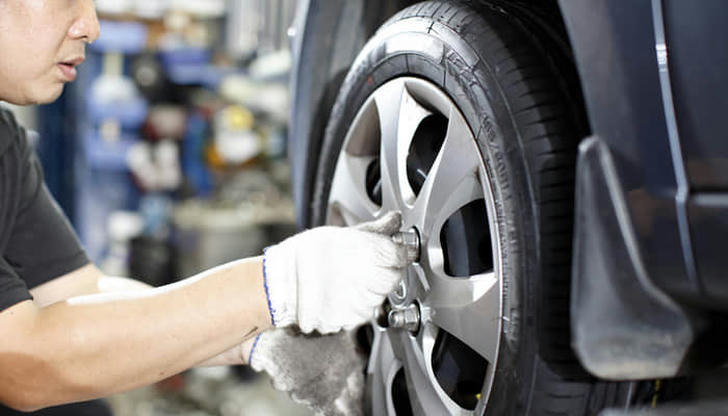Vehicle Loans for Private Sellers: How to Avoid Common Pitfalls
Buying a car from a private seller can be a smart choice. Often, you get better prices compared to dealerships. However, securing a vehicle loan for such purchases comes with its challenges. To help you navigate these waters, I’ll cover how to avoid common pitfalls when getting a car loan for a private sale.
1. Understand the Loan Process for Private Sales

Before diving in, it’s crucial to know how vehicle loans for private sellers differ from traditional dealership loans. Loans from dealerships usually come with built-in financing options, but private sales don’t. You'll need to approach lenders directly, such as banks, credit unions, or online lenders. Here’s how to make the process smooth:
• Research Lenders: Not all lenders offer loans for private sales. Find those who do and compare rates.
• Pre-Approval: Get pre-approved for a loan. This gives you a clear idea of your budget and simplifies the negotiation process.
2. Inspect the Vehicle Thoroughly

When buying from a private seller, you won’t have the safety net of a dealership's certification process. Skipping a thorough inspection is one of the biggest mistakes buyers make. Here's what you can do:
• Get a Professional Inspection: Hire a trusted mechanic to check the car for hidden issues.
• Request a Vehicle History Report: Use services like Carfax or AutoCheck to verify past accidents, ownership history, and title status.
Tip: A vehicle with a branded title (like salvage or rebuilt) may not be eligible for financing. Always check the title status first.
3. Know the Risks of Private Sale Loans

Private sale loans often come with a few quirks that can catch buyers off-guard. Here are some common pitfalls and how to handle them:
• Higher Interest Rates: These loans can carry higher rates since lenders see them as riskier. Shop around for the best deal.
• Shorter Loan Terms: Some lenders might offer shorter repayment periods for private sale loans. Make sure the monthly payment fits your budget.
4. Double-check the Car's Value

Overpaying for a vehicle is a common issue when buying from a private party. To avoid this:
• Use Valuation Tools: Websites like Kelley Blue Book (KBB) or Edmunds can help you determine the fair market value of the car.
• Negotiate Smartly: Use the valuation as leverage in your negotiations with the seller.
5. Gather the Right Documents

A smooth transaction depends on having all the necessary paperwork. Ensure you have:
• Bill of Sale: A document outlining the sale details and agreement between you and the seller.
• Title Transfer Paperwork: Check with your local Department of Motor Vehicles (DMV) for the exact requirements.
• Proof of Insurance: Some lenders require proof that the vehicle is insured before they release the funds.
Pro Tip: In some cases, lenders might ask for additional documentation, like proof of a passed smog check or verification.
6. Understand Loan Funding

When you buy a car through a private seller, the process for loan funding is different. Lenders usually don’t hand over a check to the buyer directly. Instead, they might:
• Issue Payment to the Seller: The lender may pay the seller after receiving the title and other necessary documents.
• Place Funds in Escrow: This ensures that the transaction happens smoothly and protects both parties.
7. Be Aware of Loan Limits and Requirements

Some lenders have specific rules, such as:
• Mileage and Age Restrictions: Many won’t finance cars older than a certain number of years or with excessive mileage.
• Minimum Loan Amounts: Lenders may set a minimum loan value, so be sure the car you’re buying meets these criteria.
8. Prepare for Potential Fees

Buying a car privately may come with fees that you wouldn’t encounter with a dealership purchase. These could include:
• Title Transfer Fees: Vary by state but are often required when changing ownership.
• Inspection Fees: If the lender mandates a third-party inspection before approving the loan.
• Loan Origination Fees: Some lenders charge a fee for processing your loan.
“Avoid Surprises with Due Diligence”

Buying a car on an amiable payment plan from a private seller is highly rewarding if done right. Ensure you have done your homework well start with a good lender, and cross all the boxes that need to be crossed. Do not pardon inspection or allow passion to dictate your decision-making process. Being aware and vigilant, one can make an intelligent decision to make a purchase that you can afford and will do exactly what it says it will do.
Key Takeaways:
• Pre-approval gives you a financial roadmap.
• Always get an independent inspection.
• Understand lender rules and fees before committing.
Approach your private car purchase with confidence, and avoid these common pitfalls to make your investment worthwhile.
